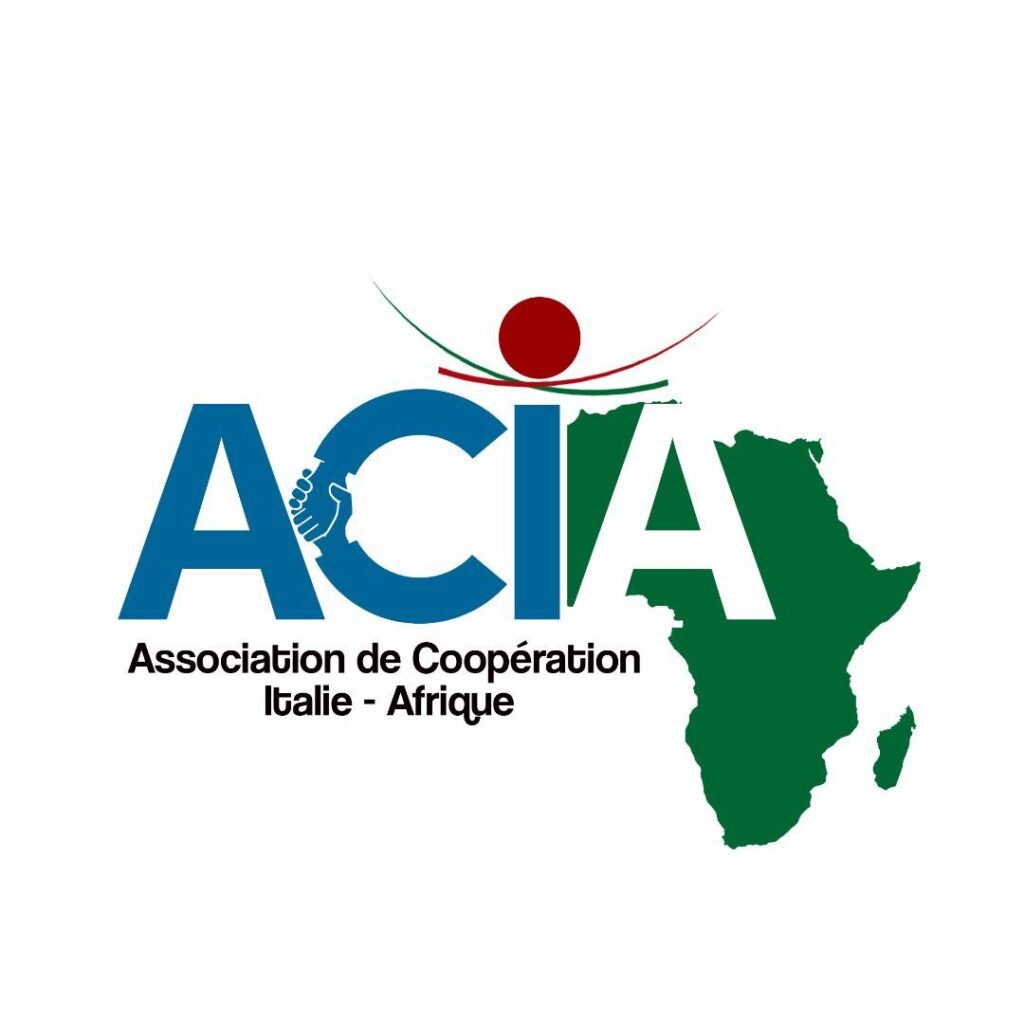Introduction to the Commercial Tender
A commercial tender is a tender in which companies compete to supply goods or services to an entity, which may be governmental, public or international. This formal, regulated process allows organisations to select the best supplier based on pre-established criteria, which often include quality, cost and ability to meet certain technical or operational requirements.
Commercial tenders play a crucial role in the global market, facilitating transparency and competitiveness. They enable companies to access significant business opportunities, especially in emerging markets such as Africa. The MDBs (Multilateral Development Banks) are among the main promoters of these tenders, financing projects that require the purchase of goods and services on a large scale. MDBs include institutions such as the World Bank, the African Development Bank and other regional banks that invest in infrastructure, health, education and other crucial development sectors.

Participating in a commercial tender can offer companies the opportunity to expand their international presence and enter new markets. However, the tendering process is complex and requires meticulous preparation, including understanding technical specifications, contract terms and compliance regulations. Companies must be prepared to submit detailed and well-structured proposals to be successful in these competitions.
In summary, trade tenders are essential tools for promoting economic growth and sustainable development. They represent a platform through which companies can not only increase their business volume but also contribute to projects of global significance, especially through the opportunities offered by MDBs in Africa. Preparation and attention to detail are key to successfully navigating this complex but highly rewarding process.
Types of Commercial Tender
Trade tenders are a crucial component for companies seeking to expand their market and access new opportunities, especially in contexts such as the MDBs (Multilateral Development Banks) in Africa. There are different types of commercial tenders, each with distinct characteristics and requirements. Understanding these differences is crucial for companies wishing to successfully participate in these processes.
Public and Private Tenders
Public tenders are invitations to tender issued by government bodies or public organisations. These tenders are usually open to all companies that meet the requirements specified in the tender. They offer transparency and equal opportunities, but can be highly competitive and require strict compliance with regulations. In contrast, private tenders are issued by private companies or organisations and may be restricted to a limited number of invited participants. These tenders may offer more flexibility in terms of requirements and conditions, but may also be less transparent.
Tenders Open and Closed
Open tenders are invitations to tender in which any company can participate, provided it meets the stated eligibility criteria. This type of tender promotes competition and can lead to innovative solutions. However, competition can be intense and require significant investment in terms of time and resources to prepare a convincing proposal. Closed tenders, on the other hand, are reserved for a select group of companies invited to participate. These tenders can reduce competition but often require pre-existing relationships and in-depth knowledge of customer requirements.
National and International Tender
National tenders are limited to companies operating within a single country. These tenders can be more accessible to local small and medium-sized companies, offering opportunities for growth without the complexity of international operations. International tenders, on the other hand, are open to companies from several countries and are often issued by international organisations or global development projects, such as those funded by the MDBs. Participating in international tenders may require a higher level of experience and resources, but it also offers the possibility of access to larger and more diverse markets.
Understanding the different types of trade tenders is crucial for companies wishing to make the most of opportunities in global markets, including emerging markets in Africa. Each type presents specific advantages and challenges, and a well-planned strategy can make all the difference in the success of a proposal.
MDBs (Multilateral Development Banks): Definition and Function

Multilateral Development Banks (MDBs) are international financial institutions established by two or more countries with the aim of promoting economic and social development in developing countries. Examples of MDBs include the World Bank, the African Development Bank (AfDB), the Asian Development Bank (ADB) and the Inter-American Development Bank (IDB). These institutions are financed by member countries that contribute capital and resources.
The main function of MDBs is to provide funding and technical support for projects that promote sustainable development. These projects range from infrastructure, such as roads and bridges, to social services, such as health and education. MDBs offer long-term loans at favourable interest rates, grants and technical assistance to ensure that beneficiary countries can realise their development goals.
In addition to direct financing, MDBs play a crucial role in facilitating commercial tenders at the international level. A commercial tender is an open, global competitive bidding process in which companies compete for contracts to implement projects financed by the MDBs. This process guarantees transparency, competitiveness and quality in the proposals, ensuring that projects are awarded to the most qualified companies with the best bids.
MDBs not only provide the necessary capital, but also the technical know-how and supervision during project implementation. This integrated approach helps reduce the risks associated with development projects and improve the end results. In addition, MDBs collaborate with local governments, NGOs and the private sector to maximise the impact of their interventions.
In summary, Multilateral Development Banks play a key role in promoting economic and social development in developing countries. Through financing and technical support, and by facilitating trade tenders, MDBs contribute significantly to sustainable and inclusive growth globally.
MDBs opportunities in Africa
Multilateral Development Banks (MDBs) are playing a crucial role in creating commercial tender opportunities in Africa. Through significant financing and targeted projects, these institutions are stimulating economic growth and sustainable development on the continent. A prominent example is the African Development Bank (AfDB), which has financed critical infrastructure projects such as the construction of roads and bridges, which are essential for improving regional connectivity and trade.
In the energy sector, the MDBs are investing in initiatives that promote renewable energy and access to electricity. Projects such as the AfDB's 'Desert to Power Initiative' aim to turn the Sahara into a solar power plant, providing clean energy to millions of people. These projects not only reduce dependence on fossil fuels but also offer commercial tender opportunities for companies specialising in solar technology and energy infrastructure.
Agriculture is another key sector where MDBs are making a difference. Funding and technical support for modern agricultural projects are improving productivity and food security. For example, the World Bank has financed large-scale irrigation initiatives and the training of farmers in advanced agricultural techniques.
In the field of healthcare, MDBs are investing in health facilities and training programmes for medical personnel. The AfDB's 'Health Systems Strengthening Programme' is a project that has significantly improved access to basic health services, creating commercial tender opportunities for companies providing medical equipment and construction services.
Participating in these tenders offers numerous advantages for companies. Not only do you gain access to growing markets, but you also contribute to the sustainable development of the continent. In addition, working on projects financed by MDBs often entails secure payment conditions and transparency in tender procedures, reducing the risks associated with investments in emerging countries.
How to Participate in a Commercial Tender
Participating in a trade tender can be a significant opportunity for companies, especially in emerging markets such as Africa. The process requires preparation and strategy, ensuring that each step is handled with care. Here is a practical guide to successfully participating in a trade tender.
Search for Opportunities
The first step in participating in a commercial tender is to identify available opportunities. Companies can start by monitoring tenders posted on the websites of multilateral development banks (MDBs) and other public procurement platforms. It is important to subscribe to newsletters and tender notices to stay up-to-date on the latest opportunities.
Preparation of Documentation
Once a tender of interest has been identified, it is essential to collect and prepare all the required documentation. This may include company certificates, financial statements, references from previous projects and any other documentation specified in the tender. The accuracy and completeness of the documentation can significantly influence the chances of success.
Presentation of the Offer
The submission of the tender is a crucial step. It is important to read the tender requirements carefully and ensure that the offer meets all the required specifications. Companies should be clear and concise in their proposal, highlighting how they meet the evaluation criteria and the advantages of their offer. In addition, it is helpful to present a competitive but realistic price.
Management of the Negotiation Process
After submitting the bid, companies may be asked to participate in negotiations. It is crucial to be prepared to discuss the details of the offer and to answer any questions from the evaluation committee. Transparency and willingness to cooperate can strengthen the company's position during negotiations.
Useful Tips
To increase the chances of success, companies should consider a few key tips. First, it is useful to establish relationships with local partners who can offer support and market knowledge. In addition, attending workshops and seminars organised by MDBs can provide valuable information and networking. Finally, reviewing previous tenders and their evaluations can provide useful insights to improve future proposals.
Challenges and Risks of Commercial Tenders in Africa
Participating in commercial tenders in Africa presents a number of challenges and risks that companies need to address with caution. One of the most significant problems is corruption, which can undermine the fairness and transparency of the selection process. Companies need to adopt strict compliance measures and conduct thorough due diligence to ensure that all operations are in line with anti-corruption regulations.
Bureaucratic barriers represent another major obstacle for companies participating in trade tenders in Africa. Complex administrative procedures and slow bureaucracy can cause significant delays. It is essential to have a thorough understanding of local regulations and to work with experienced legal and business advisors in the area to navigate these bureaucratic challenges effectively.
Logistical difficulties are another element to consider. The infrastructure network in many African regions can be inadequate, making the delivery of goods and services complicated. Companies need to plan ahead and develop robust logistics strategies, including evaluating alternative routes and working with reliable local logistics partners.
Finally, cultural differences can significantly influence success in business tenders in Africa. Understanding local business practices, norms and cultural customs is key to building strong relationships and negotiating profitable deals. Investing in intercultural training and developing a sensitivity to local cultural specificities can make the difference between success and failure.
Addressing these challenges requires a strategic and well-planned approach. Companies must be proactive in mitigating the risks and exploiting the opportunities offered by commercial tenders in Africa. With proper preparation and effective management of difficulties, the benefits of participating in these tenders can be maximised.
Success Stories and Best Practices
Examining the success stories of companies that have participated in commercial tenders in Africa through MDBs (Multi-Development Banks) offers valuable lessons for anyone wishing to enter this market. The key to success in these scenarios is often a combination of technical expertise, cultural understanding and well-defined strategies.
A notable example is that of a European engineering company that won a commercial tender for the construction of road infrastructure in a West African country. The company won the contract thanks to a well-documented and detailed proposal, which emphasised not only the technical quality of the project, but also its positive social and economic impact on the local community. The ability to demonstrate how the project would improve the daily lives of the inhabitants was crucial to success.

Another successful company is a renewable energy company that participated in a commercial tender for the installation of solar power plants in East Africa. The winning strategy included a thorough market analysis and the formation of local partnerships. Working with local companies not only improved understanding of specific market needs, but also created a sense of trust and cooperation with local authorities.
Best practices clearly emerge from success stories. Firstly, it is crucial to have a well-structured proposal that meets the specific needs of the business tender. This includes a solid market analysis and a detailed plan highlighting the positive impact of the project. Secondly, establishing local partnerships can make a big difference. These partnerships can improve cultural and logistical understanding, increasing the likelihood of success.
Finally, transparency and constant communication with MDBs are essential. Companies need to maintain an open dialogue with financiers to ensure that all parties involved are aligned on project goals and expectations. Through these well-defined strategies, companies can significantly increase their chances of success in commercial tenders in Africa.
Conclusion and Future Perspectives
In conclusion, business tenders represent an important opportunity for companies wishing to expand their operations in Africa. These tenders, offered by MDBs and other international organisations, allow companies to enter new markets and contribute to the economic development of the African continent. During our blog post, we explored what trade tenders are, how they work, and how MDBs play a crucial role in facilitating these opportunities.
Looking ahead, it is clear that the commercial tender market in Africa is set to grow. Companies wishing to capitalise on these opportunities must adopt a proactive strategy to prepare themselves adequately. This includes thoroughly understanding tender requirements, building strong relationships with MDBs, and adopting sustainable and responsible business practices. In addition, companies need to stay abreast of regulatory changes and market trends in order to quickly adapt their business strategies.
Finally, it is essential to recognise the importance of continuous preparation and information. Participating in conferences, workshops and training courses can provide companies with the necessary skills to compete effectively in commercial tenders. In addition, a focus on innovation and the adoption of new technologies can provide a significant competitive advantage. In a dynamic environment like Africa, the opportunities are numerous, but only well-prepared and informed companies will be able to take full advantage of them.
🚀 Expand Your Business in Africa!
Are you an Italian SME or an investor looking for new opportunities? The African continent offers you incredible possibilities through the international tenders and tenders of the Multilateral Development Banks (MDBs).
🌍 Why invest in Africa?
- Rapid Economic Growth
- Emerging and Dynamic Markets
- Sustainable Development Opportunities
🔍 Benefits of Participating in International Tenders:
- Access to High Impact Projects
- Collaborations with Global Organisations
- Business Expansion and Diversification
Success Stories
1. Marco R., CEO of Tech Innovators S.r.l. "Thanks to their support, we won an international tender in Kenya. Our turnover grew by 30% in one year!"
2. Laura S., Founder of EcoEnergy Solutions "The consultancy we received enabled us to win a renewable energy project in Nigeria. A real success!"
3. Giovanni L., Operations Director of AlbaFoods "With their help, we won a tender in Ghana, expanding our presence in Africa."
Act Now!
Fill out the form below and one of our expert advisors will contact you within 24 hours to discuss how we can help you participate in the MDBs' international tenders and tenders, opening the doors of the African market to your company.
🚀 Don't miss this opportunity to transform your corporate future!
Fill in the form and start your global expansion!
Business Consultant | New Global Business and Internationalisation Expert
Specialised in accompanying companies to global markets, I combine academic and operational skills to develop effective and sustainable internationalisation strategies. With a focus on innovative business models, transnational contracting and corporate social responsibility, I help companies navigate the complexities of emerging markets and informal economies.
Academic Profile
Master's Degree in Economics and International Finance with experience in Swiss and global contexts, is adjunct professor at the Catholic University of the Sacred Heart (Brescia) from 2021. He teaches:
-
International Contractslegal frameworks for operating in complex markets.
-
Informal economy in developing countriesCritical analysis of socio-economic dynamics and market opportunities.
-
Management of local and global enterprisesOperating models for 'Born Global' companies and integration of digital technologies.
Practical approach
I work with SMEs and multinationals for:
✔ Reducing cultural and logistical barriers through digital tools (OMS, ERP, 3D platforms).
✔ Implementing multiplication strategies for expansion into priority markets, with case studies in the US, UAE and Asia.
✔ Integrating social responsibility in business plans, with a focus on ethical supply chains.
Objective of the blog
Sharing insights on new global business models, practical cases of internationalisation and technological trends that are revolutionising cross-border trade.
'Success in the global economy requires not only technical expertise, but a systemic vision that combines digital innovation, cultural adaptation and sustainability'.
For collaboration or consultancy: Link






